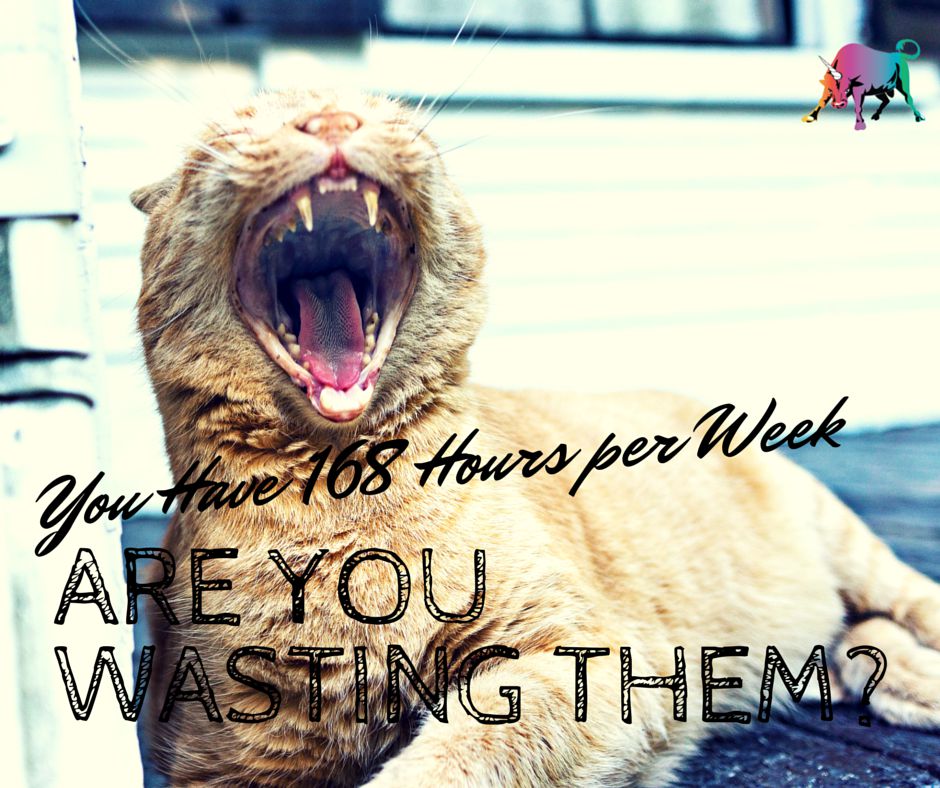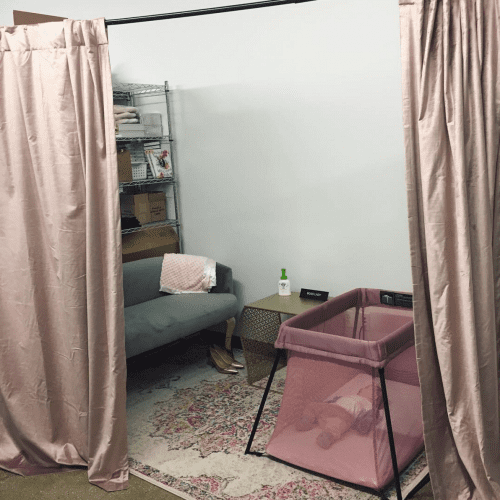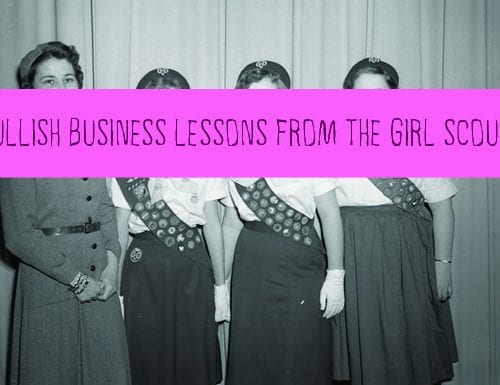In the last 168 hours—one full week—did you sleep well, accomplish something you feel proud of, experience gratitude for your friendships, make a bunch of money, and have enough orgasms to maintain a rosy glow?
That’s a tall order, of course. Weeks don’t pan out as though we had designed them in advance. Probably because we mostly fail to design them in advance.
In Bullish: Maybe Work-Life Balance Means You Should Work MORE, I suggested that to live an optimal life, you should ruthlessly identify and cut from your life any activity that is not either extremely pleasurable or extremely productive. I would guess that most people, when asked on Monday morning how much television they would like to watch that week, would say something like 2-14 hours. In actual practice, most people watch something like 30 hours of television.
In the book 168 Hours: You Have More Time Than You Think, author Laura Vanderkam suggests keeping a time diary. I’d hate to be someone who neglects to take her own advice, so I finally did this, for one full week. (Incidentally, it’s really easy to get 168 Hours confused with the James Franco movie 127 Hours, and I keep having to multiply 7 x 24 in my head to remember which is a time-management book and which involves an emergency amputation.)
Here is a brief excerpt from my time diary (a Tuesday):
7:20-7:40 snooze
7:40-8 internet
8-10 writing
10:10:30 get ready
10:30-11 commute
11-12:30 tutor
12:30 – 1:30 lunch/writing
1:30-3:30 tutor
3:30-4:15 commute
4:15-5:45 tutor
5:45-6:15 commute
6:15-6:30 food
6:30-9:30 teach
9:30-10:15 commute
10:15-12:30 friend’s birthday
12:30-2 internet, food
2-2:15 ready for bed
IT’S SO BORING. I only printed it here because I know your fingers are well-practiced at scrolling.
After a full week, though, I was able to calculate some totals. I spent:
– 28 hours on the Internet, of which I estimate that at least 14 of them involved reading stories in the Daily Mail about people murdering each other in unusual ways.
– 10 hours commuting (although once during the week I finished a Bullish column on the subway, so that was sort of productive, if exhausting and stressful.)
– 3.25 hours “hitting the snooze.” What a miserable way to live, sleeping in ten-minute increments.
– 0 hours on television or movies (I’m not claiming any moral superiority, considering that I read every word of People magazine’s coverage of that one time Blake Shelton and Miranda Lambert got married, and I have never heard any of either of their songs.)
-13.5 hours on social events (including both “friends” and “dating.”)
-34.5 billable hours in my primary profession, plus another dozen hours of writing educational materials, plus writing Bullish columns – so, 50-55 hours.
-49.5 hours sleeping (8 hours per night would be 56 hours, so I shorted myself by nearly an entire night of sleep. The “snoozing” thing is partly responsible.)
There was also time spent “getting ready” and “getting ready for bed,” a huge amount of which seems to be devoted to the application and removal of eye makeup, which is benefitting humanity exactly zero, but did get me a come-on recently from a guy who said, “Damn girl! Your eyeballs are HUGE. Love that.”
When you keep a time diary, you discover that things that seem completely inconsequential really add up over the course of a week. Like hitting the snooze all the damn time. This is a result of an aggressive freelancing lifestyle, in which I set the alarm for 7:40 a.m. even though I’ll be writing all morning and don’t have to actually be anywhere until 3pm. My brain knows this, and demands that I go back to sleep, sometimes by convincing me that I can write things in my sleep, and wake up and remember and write them down with total fidelity. Needless to say, this has never actually happened, but it’s a very convenient lie.
(One day during my time-diary week, I did write a single Tweet in my half-asleep state. I just now remembered that I forgot to actually tweet it. It was about the fact that I miss receiving those AOL promotional dial-up CDs in the mail. That seemed really funny at 7:55 a.m. last Thursday.)
The solution? Not to rip off Anchorman, but: I love Bed! Bed and I are friends! I totally want to spend more time asleep! Without any loud noises going off! So I should probably devise a more regular sleeping schedule, or an hour after which I do not look at things on the Internet. I do sometimes make my test prep students schedule sleep the week of the test. Their smartphones ring out their bedtimes; the brain needs sleep!
I think that if you committed to keeping your own time diary, you’d find some similar time sucks, other than the obvious.
A brief analogy: as, among other things, a GRE instructor and author, I have noticed that even when people are trying to learn vocabulary, there are certain words they skip over and never look up, even though these people have no idea what the words mean – words like moreover, likewise, notwithstanding, nevertheless, and erstwhile (so, a lot of prepositions and adverbs). That is, some words are just not caught by our “I need a dictionary” filter because, somehow, those words are not “vocabulary words.”
Similarly, when people think about saving time or streamlining their schedules, the easy kills are things like “television.” But I think most of us have blind spots. Anything that begins after dark usually takes an insane amount of time, and many people who would never waste an hour twiddling their thumbs during the day will regularly stay at a social event way after they’ve stopped having fun; like airport time, that time is somehow not “real time.” It is, though.
For instance, here’s something that at least half of the people reading this column spend five or more hours per week on: insomnia. How many people waste time not doing anything, not enjoying anything, and also not sleeping?
If you are literally wasting five hours a week trying to fall asleep, that’s a pretty good incentive to spend ten hours tracking down sleep doctors or implementing a bedtime wind-down routine—once you track your time, there’s a good case for spending ten hours now to save a few hundred hours per year.
I challenge you to be honest about where you really spend your time—and to quantify it, as our feelings about these things can be remarkably inaccurate. A time diary can be as simple as a Word document. Don’t wait until the perfect time to start. I began on a random Thursday.
I’m sure you’ve heard that classic advice that if you want to save money, “pay yourself first.” If you don’t even see the money, you won’t miss it, but if you wait to save until you have some “extra,” you’ll never do it.
The same is true of time. After all my “snoozing,” I’m absolutely not going to have a beer after work and decide, in a flash of inspiration, to finally write that book proposal. One commenter on the Amazon page for 168 Hours took stock of her time and realized that she actually does have time to read War and Peace. In the original Russian.
Money is not a zero-sum game. But time actually is. We all get 127 (sorry, 168!) hours per week—to fritter away, spend sawing our own arms off, or devote to well-curated awesomeness.
originally published on The Gloss









